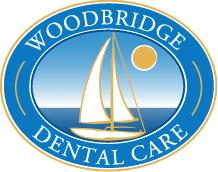Dentist 22192
 Don’t be fooled by the label “100 percent fruit juice.” Drinks advertised in this way might seem like a healthy choice, but these drinks may be doing more harm than good. In fact, fruit juices contain sugar that can lead to tooth decay. The American Academy of Pediatrics (AAP) recently reevaluated their recommendations for allowing small children to consume fruit juice. Here’s what you need to know about the new guidelines.
Don’t be fooled by the label “100 percent fruit juice.” Drinks advertised in this way might seem like a healthy choice, but these drinks may be doing more harm than good. In fact, fruit juices contain sugar that can lead to tooth decay. The American Academy of Pediatrics (AAP) recently reevaluated their recommendations for allowing small children to consume fruit juice. Here’s what you need to know about the new guidelines.
No Fruit Juice in First 12 Months
The AAP used to suggest that infants younger than 6 months old should not be given fruit juice to drink. This year, however, the AAP updated these recommendations to suggest refraining from fruit juice for any infant 12 months and younger.
A Good Source of Vitamins – And Sugar
Fruit juice can be an excellent source for vitamins and minerals. Many fruit juices contain vitamin C and potassium. However, fruit juices are often high in sugar content. According to a study summarized by Medical News Today, fruit juice may contain as much as 2 teaspoons of sugar for every 100-mililiters.
Fruit Juice May Be Harming Your Teeth
Sugar is a leading cause of tooth decay, especially in children. The AAP also advises that toddlers and young children should not be served fruit juice in a “sippy cup.” These cups provide greater exposure of decay-causing sugar to teeth, leading to an ideal environment for tooth decay.
According to the updated guidelines set by the AAP, moderation is key. While children under 12 months of age should not be provided fruit juice, small amounts may be permitted for older children. The AAP suggests a maximum of 4 ounces of fruit juice per day for children aged 1 to 3, 4 to 6 ounces per day for children aged 4 to 6, and 8 ounces per day for those between the ages of 7 and 18. You may also consider adding water to dilute the juice before giving it to your child, so they receive less sugar.
Children and adolescents aren’t the only group that can benefit from consuming fewer sugary drinks. Sugar still leads to decay in adults as well. Our team suggests trying to limit your own consumption of sugary drinks.
Maintaining regular visits to our office will allow our dental team to ensure your child’s teeth are healthy. We will provide a comprehensive screening to locate and treat decay. If your child drinks more than the suggested amount of sugary fruit drinks, consider scheduling an extra cleaning with our team. Together, we can work to promote a lifetime of optimal oral health.
To schedule a visit to our dental office, please contact our team.
4315 Ridgewood Center Dr
Woodbridge, VA 22192
(703) 670-4994






 According to the American Dental Association, 50 percent of adults experience bad breath at some point in their life. Although some causes are harmless, other causes may be signaling something more serious. Below are three common causes of bad breath, accompanied by the best remedy for each cause.
According to the American Dental Association, 50 percent of adults experience bad breath at some point in their life. Although some causes are harmless, other causes may be signaling something more serious. Below are three common causes of bad breath, accompanied by the best remedy for each cause. During a comprehensive dental examination, our team will look for signs of oral cancer. Early detection is key with oral cancer. If caught early, most forms of oral cancer are treatable. Our dental team is trained and educated to identify oral cancer.
During a comprehensive dental examination, our team will look for signs of oral cancer. Early detection is key with oral cancer. If caught early, most forms of oral cancer are treatable. Our dental team is trained and educated to identify oral cancer. Do you suffer from regular sensitivity? Teeth sensitivity is often misunderstood, but our dental team can help you find relief. We’re here to separate the fact from fiction in sensitivity.
Do you suffer from regular sensitivity? Teeth sensitivity is often misunderstood, but our dental team can help you find relief. We’re here to separate the fact from fiction in sensitivity.
 Don’t wait until you’re in pain to see your dentist! Most people make time to clean out the house, car, garage, or closets at least twice a year. Why not include your oral health on your “to do” list?
Don’t wait until you’re in pain to see your dentist! Most people make time to clean out the house, car, garage, or closets at least twice a year. Why not include your oral health on your “to do” list? Sugary, sticky, and sweet candies can damage your teeth by increasing your risk of decay. Though gum can be considered a type of candy, chewing sugarless gum approved by the ADA can actually help protect teeth and prevent tooth decay. Here’s what you need to know about gum and your teeth.
Sugary, sticky, and sweet candies can damage your teeth by increasing your risk of decay. Though gum can be considered a type of candy, chewing sugarless gum approved by the ADA can actually help protect teeth and prevent tooth decay. Here’s what you need to know about gum and your teeth. Nearly everyone has at least one habit that they wish they could break. Did you know that some of them can affect your oral health? Here are a few common habits and tips for how to break them.
Nearly everyone has at least one habit that they wish they could break. Did you know that some of them can affect your oral health? Here are a few common habits and tips for how to break them. A canker sore can make eating, drinking, and talking difficult and even painful. Maintaining your oral health by brushing and flossing may also be difficult with a sore in your mouth, but keeping up with your daily oral hygiene routine is an important step in the healing process. We’ve put together a short guide to everything you need to know about canker sores.
A canker sore can make eating, drinking, and talking difficult and even painful. Maintaining your oral health by brushing and flossing may also be difficult with a sore in your mouth, but keeping up with your daily oral hygiene routine is an important step in the healing process. We’ve put together a short guide to everything you need to know about canker sores. Your gum health may have an impact on your cognitive function. One recent study found a correlation between gum disease and increased cognitive decline for people living with early stages of Alzheimer’s disease. While more studies are needed to make a definitive connection, this study illustrates the importance of continuing the conversation about oral health and its impact on your entire body.
Your gum health may have an impact on your cognitive function. One recent study found a correlation between gum disease and increased cognitive decline for people living with early stages of Alzheimer’s disease. While more studies are needed to make a definitive connection, this study illustrates the importance of continuing the conversation about oral health and its impact on your entire body.